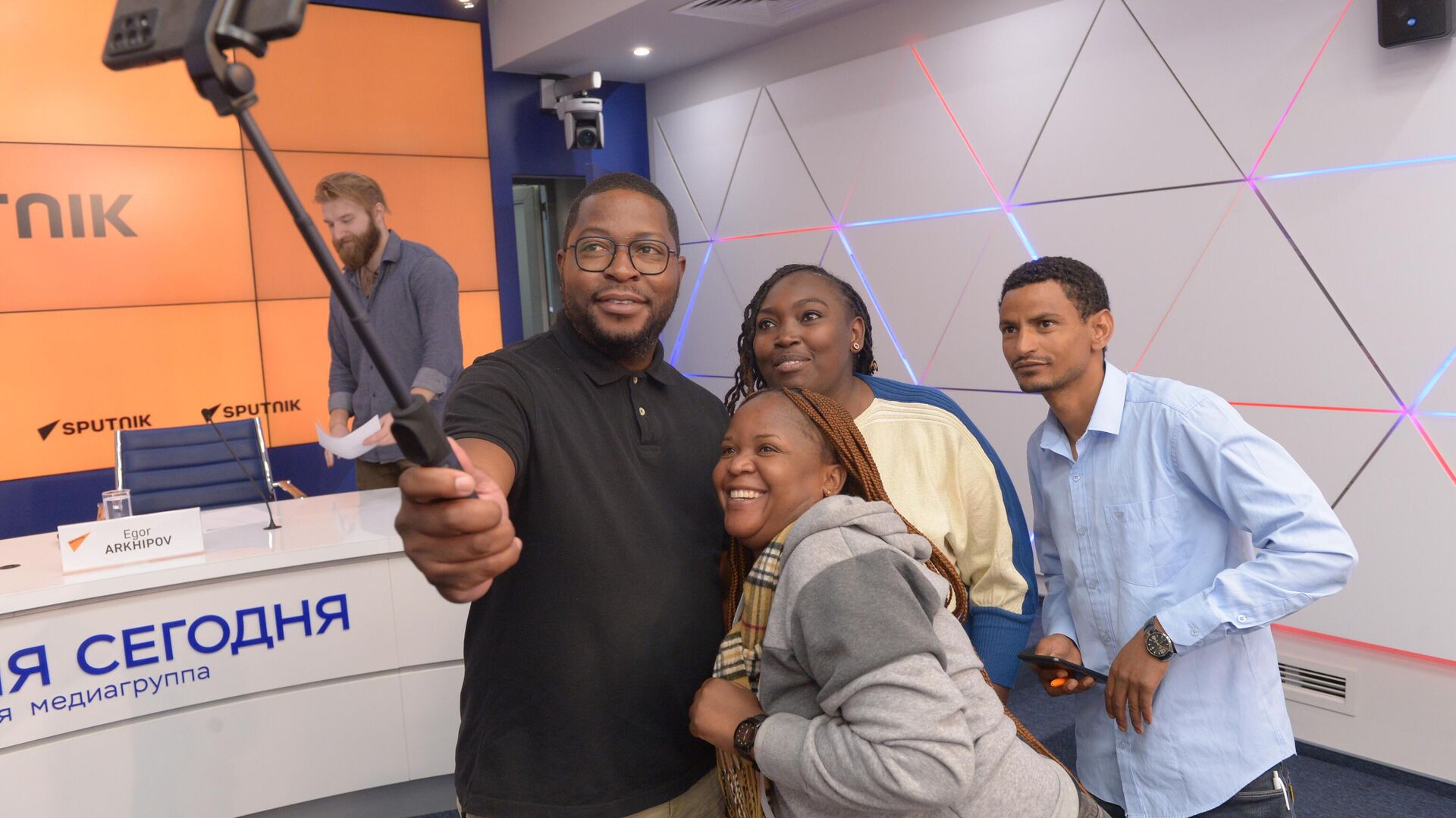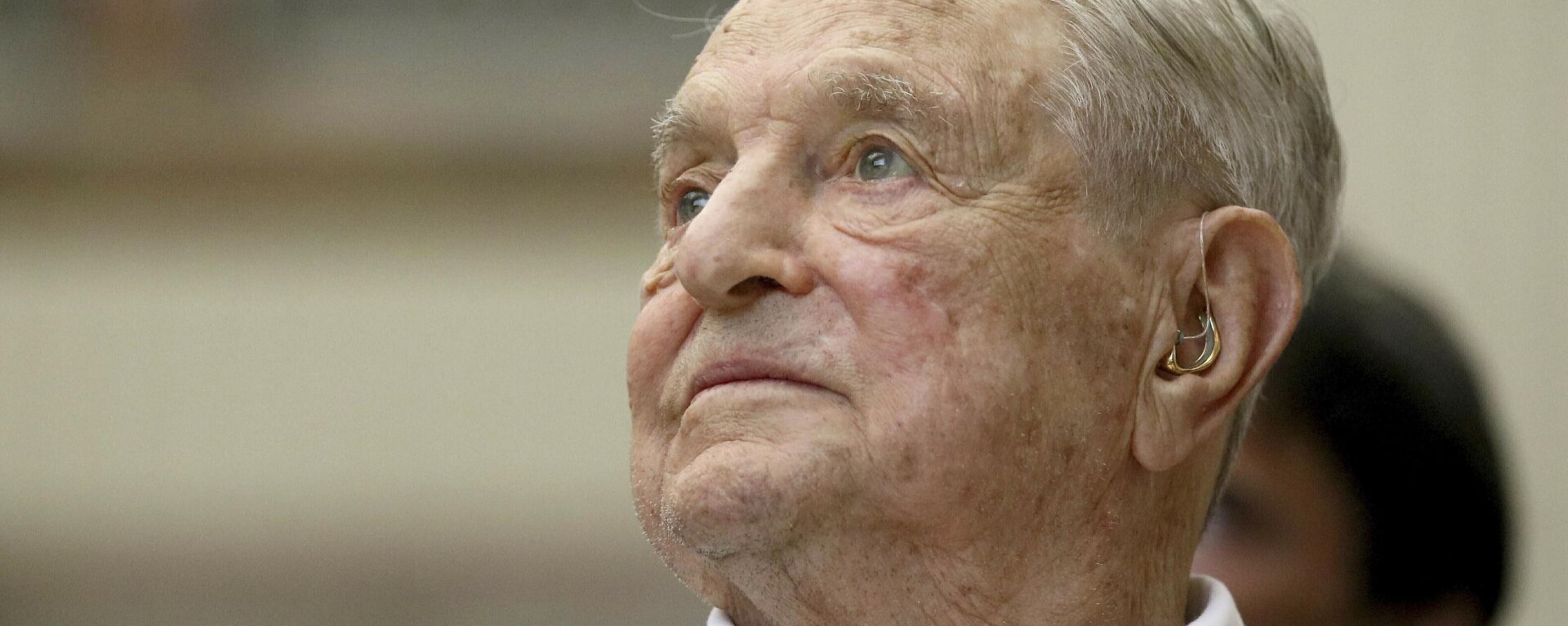https://en.sputniknews.africa/20230912/global-south-should-enhance-people-culture-exchanges-expert-says-on-south-south-cooperation-day-1062064601.html
Global South Should Enhance People, Culture Exchanges, Expert Says on South-South Cooperation Day
Global South Should Enhance People, Culture Exchanges, Expert Says on South-South Cooperation Day
Sputnik Africa
On September 12, the UN celebrates Day for South-South Cooperation, the holiday which dates back to 1978, and is particularly relevant today in light of the... 12.09.2023, Sputnik Africa
2023-09-12T18:56+0200
2023-09-12T18:56+0200
2023-09-12T18:56+0200
opinion
multipolarity
africa insight
brics
united nations (un)
new development bank (ndb)
china
india
russia
west
https://cdn1.img.sputniknews.africa/img/07e6/0a/13/1056558200_0:159:3076:1889_1920x0_80_0_0_4f91d1bbe6520d281507a33420c02103.jpg
Developing nations should increase interaction not only within organizational institutions, but also through people-to-people and cultural exchange, Dr. Ronald Chipaike, Lecturer in International Relations at Bindura University of Science Education said, answering Sputnik Africa's question how the global South can strengthen the move towards multipolarity.The expert stressed the importance of promoting cooperation among countries of the Global South, pointing out that over the past few years, increased interaction among developing nations had "created opportunities for less powerful and marginalized states to have their voices heard at the global level."Furthermore, strengthening South-South ties has challenged the dominance of the US and other Western global powers. According to the pundit, this challenge has translated into easier access to finance for developing countries through the financial platforms of the Global South.In addition, the researcher mentioned the field of artificial intelligence as "critical for national development of southern countries," pointing to the successes of China, India and Russia in this sphere. The expert assigned an important role in the development of South-South cooperation to the BRICS group, especially in view of its course of expansion. In this vein, Chipaike believes, many other countries that have expressed a desire to join the bloc will benefit in terms of access to finance and trade facilitation.From August 22 to 24, the South African city of Johannesburg hosted the 15th BRICS summit, which decided to embrace Argentina, Egypt, Ethiopia, Egypt, Iran, Saudi Arabia and the UAE.According to the South African Foreign Ministry, Algeria, Bahrain, Bangladesh, Belarus, Bolivia, Cuba, Honduras, Indonesia, Kazakhstan, Kuwait, Morocco, Nigeria, the State of Palestine, Senegal, Thailand, Venezuela, and Vietnam have also knocked on the doors of the organization.
https://en.sputniknews.africa/20230905/soros-foundation-reportedly-moves-its-activities-to-countries-of-global-south-1061902491.html
china
india
russia
west
united states (us)
Sputnik Africa
feedback@sputniknews.com
+74956456601
MIA „Rossiya Segodnya“
2023
Maxim Grishenkin
https://cdn1.img.sputniknews.africa/img/07e7/0a/17/1063018107_0:0:1104:1103_100x100_80_0_0_03090c85a11f5d2e8a19cf1d989443c9.jpg
Maxim Grishenkin
https://cdn1.img.sputniknews.africa/img/07e7/0a/17/1063018107_0:0:1104:1103_100x100_80_0_0_03090c85a11f5d2e8a19cf1d989443c9.jpg
News
en_EN
Sputnik Africa
feedback@sputniknews.com
+74956456601
MIA „Rossiya Segodnya“
Sputnik Africa
feedback@sputniknews.com
+74956456601
MIA „Rossiya Segodnya“
Maxim Grishenkin
https://cdn1.img.sputniknews.africa/img/07e7/0a/17/1063018107_0:0:1104:1103_100x100_80_0_0_03090c85a11f5d2e8a19cf1d989443c9.jpg
multipolarity, africa insight, brics, united nations (un), new development bank (ndb), china, india, russia, west, united states (us)
multipolarity, africa insight, brics, united nations (un), new development bank (ndb), china, india, russia, west, united states (us)
Global South Should Enhance People, Culture Exchanges, Expert Says on South-South Cooperation Day
On September 12, the UN celebrates Day for South-South Cooperation, the holiday which dates back to 1978, and is particularly relevant today in light of the emerging multipolar world. The theme for 2023 commemoration is "Solidarity, Equity and Partnership: Unlocking South-South Cooperation to Achieve the SDGs."
Developing nations should increase interaction not only within organizational institutions, but also through people-to-people and cultural exchange,
Dr. Ronald Chipaike, Lecturer in International Relations at Bindura University of Science Education said, answering
Sputnik Africa's question how the global South can strengthen the
move towards multipolarity.
"Global south countries need to intensify interactions through not only high level summits of heads of state but through people to people exchanges, cultural exchanges, engagement between civil society organizations of different countries of the south among other initiatives," the expert pointed out.
The expert stressed the importance of promoting
cooperation among countries of the Global South, pointing out that over the past few years, increased interaction among developing nations had "created opportunities for less powerful and marginalized states to have their voices heard at the global level."
Furthermore, strengthening South-South ties has challenged the dominance of the US and other Western global powers. According to the pundit, this challenge has translated into easier access to finance for developing countries through the financial platforms of the Global South.
"Southern countries can now access comparatively cheaper funding for their infrastructure projects from the Chinese Eximbank, the New Development BRICS Bank and a host of their southern funding institutions that are prepared to offer development finance on largely concessional terms compare to the conditionality based financing system of the IMF and World Bank," Chipaike explained, adding that "this creates room for maneuver for southern states."
In addition, the researcher mentioned the field of artificial intelligence as "critical for national development of southern countries," pointing to the successes of China, India and Russia in this sphere.
"The capabilities of China, India, Russia and other countries in this area gives southern states options to choose. This means global powers will not continue to dominate over the affairs and interests of lesser powers in the south," Chipaike noted.
The expert assigned an important role in the development of South-South cooperation to the BRICS group, especially in view of its
course of expansion. In this vein, Chipaike believes, many other countries that have expressed a desire to join the bloc will benefit in terms of access to finance and trade facilitation.
"Its [BRICS] invitation to a couple of more countries to join indicates the potential that is there for interaction [...] If BRICS is broadened to include many other states from the south, it can be a formidable platform for South-South cooperation," the lecturer concluded.
From August 22 to 24, the South African city of Johannesburg hosted the 15th BRICS summit, which decided to embrace Argentina, Egypt, Ethiopia, Egypt, Iran, Saudi Arabia and the UAE.
According to the South African Foreign Ministry, Algeria, Bahrain, Bangladesh, Belarus, Bolivia, Cuba, Honduras, Indonesia, Kazakhstan, Kuwait, Morocco, Nigeria, the State of Palestine, Senegal, Thailand, Venezuela, and Vietnam have
also knocked on the doors of the organization.



